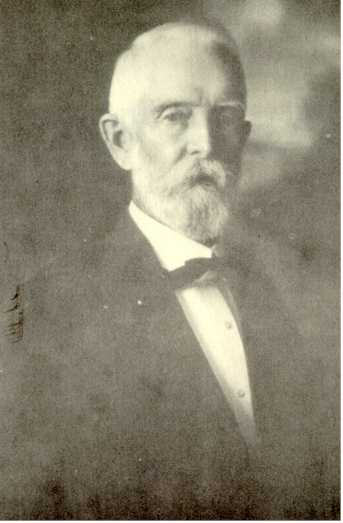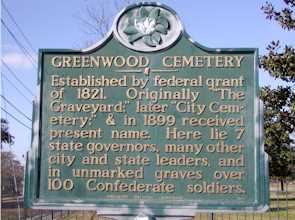|
Private Douglas Cater: Regiment Musician
by
Rebecca
Blackwell Drake
 Private Douglas Cater, 3rd Texas
Cavalry and later the 19th Louisiana Infantry, began his odyssey
with the Confederate Army on June 8, 1861. Like others fighting
for the Confederacy, the musician turned soldier was full of hope
that he could help to save his beloved Southland. "I told my
family and loved ones that we must be cheerful," he
reminisced, "having faith that I would return to tell them of
my varied experiences in the army." Cater was not the only
one in his family to say goodbye. Also marching off to war were
his brothers Wade and Rufus. Private Douglas Cater, 3rd Texas
Cavalry and later the 19th Louisiana Infantry, began his odyssey
with the Confederate Army on June 8, 1861. Like others fighting
for the Confederacy, the musician turned soldier was full of hope
that he could help to save his beloved Southland. "I told my
family and loved ones that we must be cheerful," he
reminisced, "having faith that I would return to tell them of
my varied experiences in the army." Cater was not the only
one in his family to say goodbye. Also marching off to war were
his brothers Wade and Rufus.
Private Cater traveled
with a bugle and a violin. "Col. Armstrong and I would take
our violins out of the baggage wagon at night when favorable
opportunity offered, and we would entertain the 'boys' with
music," wrote Cater. "We frequently played cotillions and
reels for them to dance. They would form a 'full set' by tying a
handkerchief around the left arm of those who were to act as
ladies as partners. Often there would be a hundred or more men
present to listen to the music, as well as to 'look on' at the
dance."
Cater's love of music and
his talents for entertaining helped the troops through many a hard
time, especially during the freezing winter of 1862 and the Battle
of Pea Ridge, where so many of his fellow soldiers were killed.
In the spring of 1863,
Cater and Rufus, fighting with the 19th Louisiana Regiment, were
ordered to Mississippi to help defend Vicksburg. "General
Bragg commanded that part of the army," Cater recalled,
"and was needing every available man to face the Federal
army, but Gen. Pemberton, who had disobeyed the orders of Gen.
Johnston to leave Vicksburg and come to him and was sustained in
this disobedience by President Davis, was needing reinforcements
at Vicksburg against the advance of General Grant." By the
time Cater arrived in Jackson on May 31st, Vicksburg was under
siege.
During their first days
in Jackson, Cater and Rufus, went to the city graveyard looking
for their lost brother, Wade. "After a long search in the
cemetery at this place [Jackson], found the grave of our beloved
brother Wade, which was marked by a plain board with his name and
the number of his regiment," wrote Cater. " He had
contracted cold in the trenches [Vicksburg] and was sent out to
Jackson where he died. We found a marble slab in an old marble
yard and cut his name, age and regiment on it and placed it at the
head of his grave."
|

Wade Cater fell
ill during the Siege of Vicksburg and later died in the
Confederate hospital in Jackson. He was buried in the
Graveyard with only a hand scribbled marble slab as a
marker.
|
After the fall of Vicksburg,
the 19th Louisiana was assigned to the trenches around Jackson. It
was here Cater managed to haul a beautiful old piano out of a home
destined to be burned. The piano was placed in the trenches where
Cater and Rufus entertained the troops playing and singing. At one
point, the men were so engrossed in their music making they forgot
about the enemy until the Yankees stormed the trenches. The men
ceased their music-making just long enough to defend themselves
against the approaching enemy - killing one hundred and sixty blue
coats.
After the fall of
Vicksburg, Cater and Rufus continued on to Georgia. During the
battle of Chickamauga, Rufus was killed. Recalling the sadness of
his brother's death, Cater wrote: "His blanket which he had
folded in the morning and carried over his shoulder, the ends tied
with a string at his side, had been unfolded and he was lying on
it, cold in death. His watch, his purse, the shoes from his feet,
his sword and scabbard had all been taken. His pants pockets were
turned wrong side out and the devils in human form not yet
satisfied, had fired a rifle ball through his forehead. The ball
through his forehead was sufficient evidence that he was murdered
while a prisoner on the battlefield."
With two brothers lost to
the Confederate cause, Private Cater still continued with his war
efforts. Adding to his sadness was a letter from home informing
him that his nine-year old brother had also died. All too well,
the music-making soldier had come to know the pain of death.
Private Cater continued
fighting through the Siege of Atlanta and the Battle of Franklin,
also known as one of the worst 'blood baths' of the war. Recalling
the poor leadership by General John Bell Hood in the Battle of
Franklin, Cater wrote a stinging review: "We are now going to
witness a manifestation of General John B. Hood's great
generalship. Does he order his whole army forward? Oh, no! There
is a little field in front of the enemy's breastworks large enough
for a little division to form a line across it. The army is
halted; a division is sent across the field to take the enemy's
breastworks. It fails and must retreat across that field under
fire, the same as when facing the enemy. A second division makes
the same effort and meets the same results. A third division, and
another were sent, both with the same results. Gen. Cleburne and
his staff and all their horses are left on the breastworks. Our
division is to make the next assault, but darkness has come and we
must wait till the next morning. When the morning came we started.
We must be careful least we step on a dead or wounded soldier. We
went across the same field to the breastworks. We met no
opposition. The enemy had gone to Nashville. We found the trenches
filled - not half-filled - but filled with dead men, both Federals
and Confederates."
The Battle of Franklin
sounded a death knoll for the Confederate Army. Private Cater and
the 19th Louisiana Infantry retreated, saving what they could of
their army. There was no victory and each and every one of the men
had paid a terrible price..
Seven months after the
Battle of Franklin, Cater was mustered out of service and returned
to the family home in Louisiana. Of the homecoming he wrote:
"I cannot tell of my own feelings as I dismounted at the gate
and heard the faithful watch dog's bay deep mouth welcome. I knew
welcome awaited me, not as a returning prodigal, but as the only
one left of the three this home had furnished as soldiers to the
Confederate States army."
Some time later, Cater
recalled his promise to tell his family of his war experiences.
Using an Indian Head tablet and a pencil he began writing his
memories: "Three years? Yes, it is just three years today
since I bid adieu to Texas friends and took up the line of march,
a soldier of the Confederate States….."
Historic Source: As
It Was: Reminiscences of a Soldier of the Third Texas Cavalry and
The Nineteenth Louisiana Infantry by Douglas John Cater. Pvt.
Cater's diary and memoirs were collected by William D. Cater,
grandson, and first published in 1981. The book has recently been
published [1990] by State House Press, P.O. Box 15247, Austin,
Texas, 78761.
|